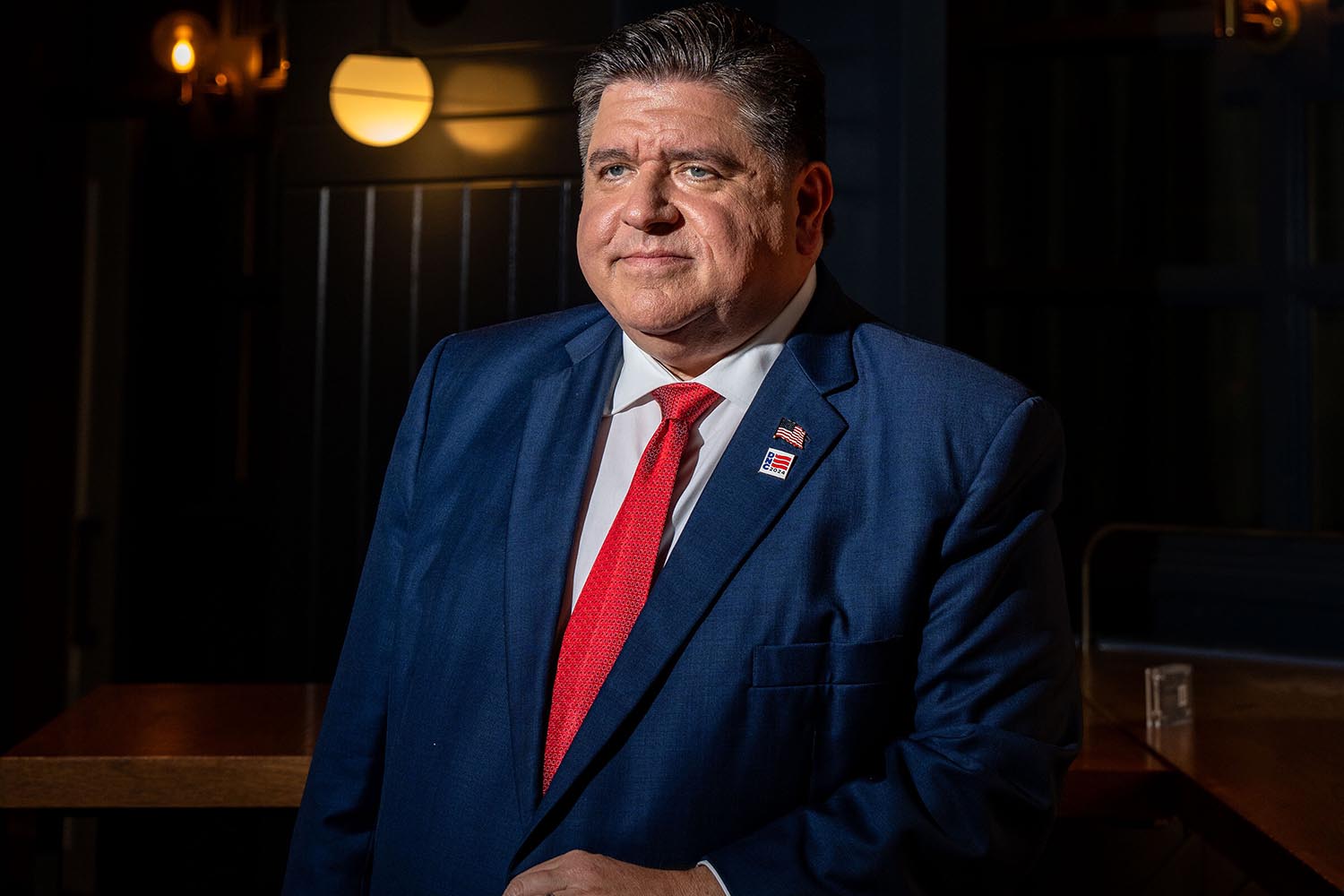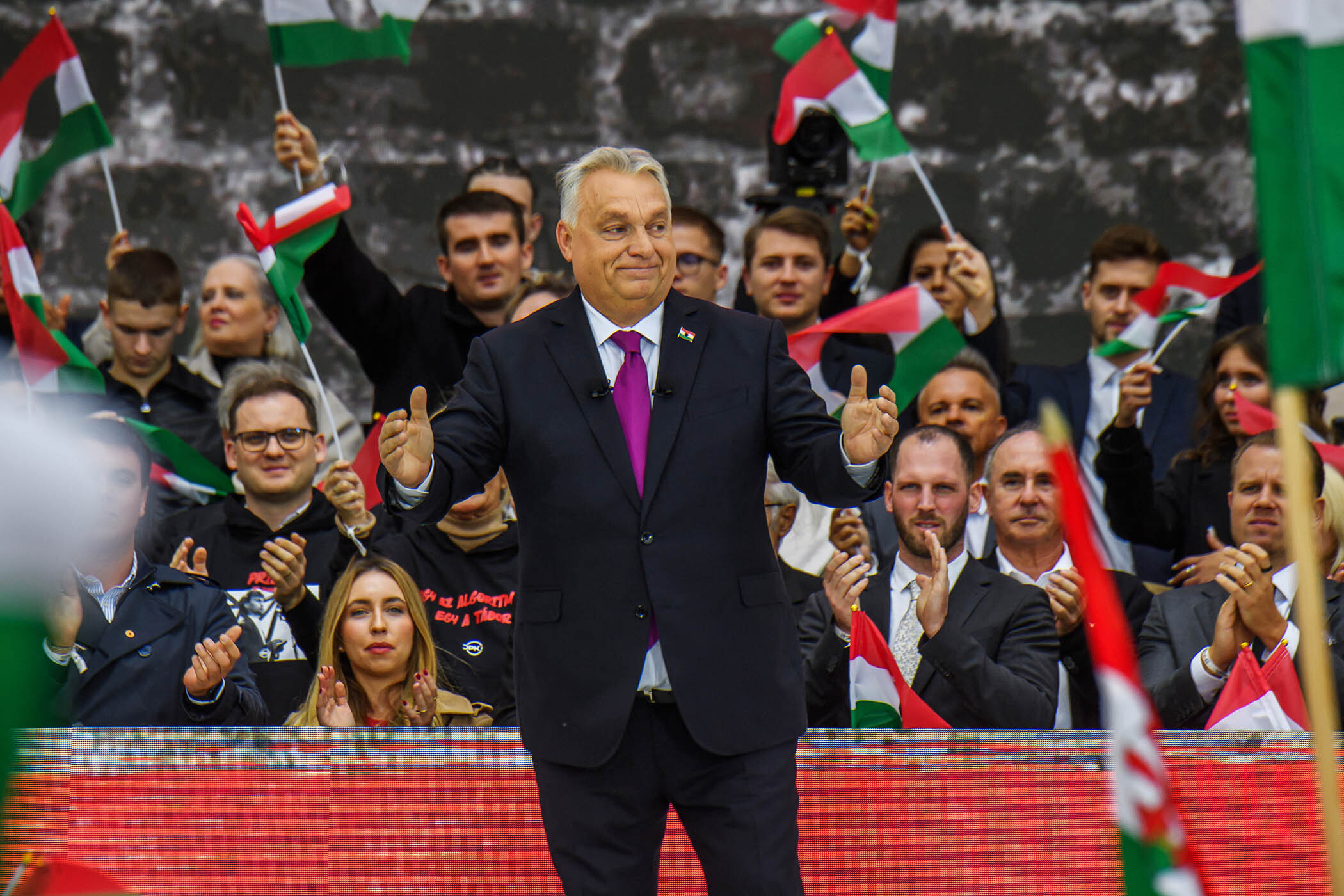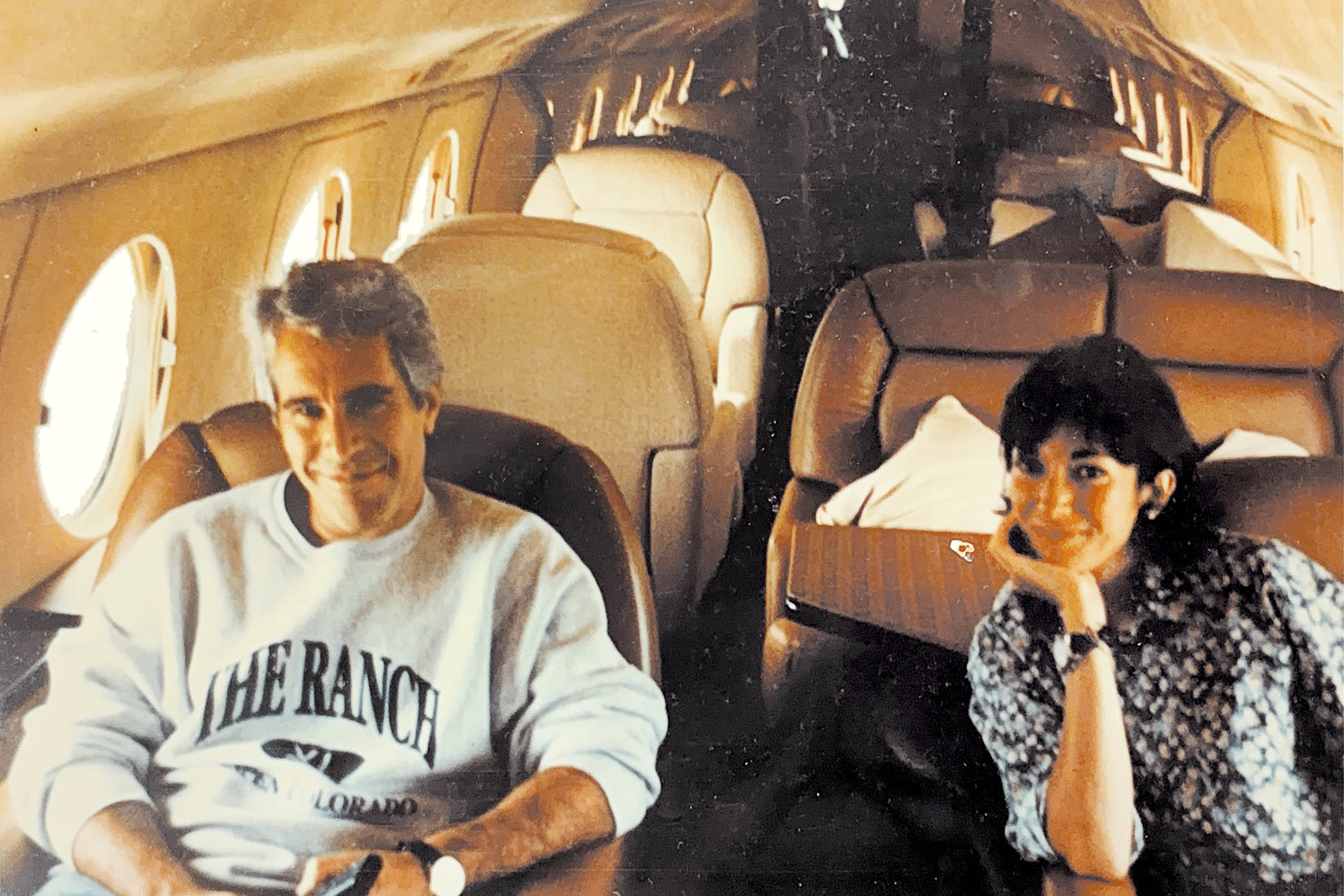Flanked by a 4ft effigy of Jesus on the counter, John Rodriguez gestured unhappily to his empty shop in Chicago’s Little Village neighbourhood.
“Business is slow. People are not in the street. Events are being cancelled,” he said. “People are frightened.”
The shop on West 26th Street turns out religious statues for festivals and parties. In the window, a huge figure of Death, clad in a red cape and carrying a scythe, towers over an effigy of the Virgin Mary.
With the Day of the Dead festival on the horizon, this should be a busy time in Little Village, known as the “Mexico of the midwest”. Instead, the mood is tense, as Donald Trump threatens to send National Guard troops into Chicago to crack down on crime and illegal immigration, condemning the third-largest US city as “a killing field”.
“This whole area is Hispanic,” said Rodriguez. “If soldiers come to Chicago, where do you think they’ll go?”
Latino communities in Little Village and nearby Pilsen have already seen a surge of raids and arrests by agents of Immigration and Customs Enforcement (Ice) since Trump’s return to power. Now they fear that worse is to come as the president moves to expand his military takeover of Washington DC to other Democratic cities.
“People are hesitant to go out and eat,” said Maria Almanza, who works at a Mexican restaurant that was raided in Pilsen. “Everyone is scared. Everyone has seen what is happening in DC.”
Trump’s move to send troops into Chicago – with Baltimore and New York next in his sights – would mark a further escalation as he continues to test and expand the limits of presidential power.
Trump last week insisted that he had “the right to do anything I want”.
“I’m the president of the United States,” Trump said to reporters. “If I think our country is in danger – and it is in danger in these cities – I can do it.”
Newsletters
Choose the newsletters you want to receive
View more
For information about how The Observer protects your data, read our Privacy Policy
“Most people are saying: ‘If you call him a dictator, if he stops crime, he can be whatever he wants,’” Trump added. “I am not a dictator, by the way.”
The possibility of military patrols on the streets of Chicago has drawn fierce condemnation from JB Pritzker, the pugnacious Democratic governor of Illinois and one of the president’s most outspoken critics.
“Mr President, do not come to Chicago. You are neither wanted here nor needed here,” Pritzker said last week, lambasting Republicans for bowing “to the ego of a dictator”.
“What President Trump is doing is unprecedented and unwarranted,” he added, vowing to fight the move in court. “It is illegal. It is unconstitutional. It is un-American.”
Pritzker, 60, is running for a third term as governor next year but many leading Democrats suspect he has his eyes on a bigger prize: the White House. A billionaire who inherited vast wealth and is fond of a political scrap, Pritzker has drawn comparisons with Trump himself. The president and governor have even traded jibes over each other’s weight in recent days.
Pritzker, an heir to the Hyatt hotel fortune, has never been shy of attacking Trump. “Take it from an actual billionaire, Trump is rich in only one thing: stupidity,” he told the Democratic National Convention in Chicago last year.
With Democrats rudderless and reeling from Trump’s decisive election victory last November, however, Pritzker has further raised his profile and given heart to the party faithful with a string of blistering attacks on the new administration.
“It’s time to fight everywhere and all at once,” he told Democratic officials and donors in New Hampshire earlier this year, where he also criticised the “simpering timidity” of some in his party.
“Never before in my life have I called for mass protests, for mobilisation, for disruption. But I am now,” Pritzker said to cheers. “These Republicans cannot know a moment of peace… The reckoning is finally here.”
He’s got enough money to do whatever he wants, and he’s vocal about Trump in ways that are thoughtful but direct.
He’s got enough money to do whatever he wants, and he’s vocal about Trump in ways that are thoughtful but direct.
Hank Sheinkopf, ex-Democratic strategist
Hank Sheinkopf, a veteran Democratic strategist and former adviser to Bill Clinton, said that Pritzker had “the guts to say things that many Democrats want to hear”.
He added: “He’s trying to get all the pieces of his party united around him, because the Democrats are splintered and stand for nothing. He’s got enough money to do whatever he wants, and he’s vocal about Trump in ways that are thoughtful but direct.”
Trump’s attacks on Democratic-run cities have served to elevate several early contenders for the party’s nomination in 2028, just as its base is clamouring for their leaders to fight fire with fire.
California’s governor, Gavin Newsom, established himself as a figurehead of the resistance in recent weeks. Newsom has led the fightback against Republican efforts to gerrymander more House seats before next year’s crucial midterm elections, while a viral social media campaign mocking Trump has got under the skin of the president and his cheerleaders in the conservative press.
Wes Moore, the charismatic Black governor of Maryland, who is also tipped to run in 2028, hit back at Trump’s threats to send troops into Baltimore. Moore suggested that the president rejected his invitation for a walking tour of the city because he needed a “golf cart” to get around.
The standoff with Trump over Chicago offers Pritzker his chance to audition for the nomination. Democratic strategists say that the governor, who made the shortlist to be Kamala Harris’s running mate last year, began building a team to explore a run for president months ago.
His trip to New Hampshire, traditionally the first battleground in the Democratic primary, raised speculation. Speaking to NBC News two weeks ago, Pritzker said again that he “can’t rule anything out” when it comes to a potential White House run.
Besides a net worth of nearly $4bn, according to Forbes, Pritzker has other advantages over contenders such as Newsom, who is seen as a walking poster child for the west coast liberal elite.
“He comes from the midwest, and for any Democrat to win, they’ve got to recapture parts of the ‘blue wall’ that fell apart last year,” said Sheinkopf.
On the crisis in Gaza, a hot-button issue among Democrats, Pritzker has shifted his stance in recent months. A practising Jew whose family fled pogroms in Ukraine in the late 19th century, Pritzker initially defended Israel’s military offensive and opposed a Chicago city council resolution calling for a ceasefire last year.
But he has grown increasingly critical as the war has dragged on, endorsing a push by Senate Democrats to block US arms sales to Israel in an attempt to force Benjamin Netanyahu to allow humanitarian aid into Gaza.
Pritzker faces serious obstacles to any White House run, however. A poll this month found that his approval rating had flipped negative for the first time. Some Illinois voters have complained that his efforts to raise his national profile have come at the expense of governance at home.
Under his stewardship, the state budget has mushroomed to finance investment in education, infrastructure, tech and green energy.
But he has struggled to stem a decade-long exodus from Illinois that has seen hundreds of thousands depart for other states. Accusing Trump of manufacturing a crisis, Pritzker has highlighted his progress in tackling crime since a spike during the pandemic. The city has recorded 266 murders so far this year, down by more than 30%.
But the 573 homicides in Chicago last year were the most in any US city by far – New York was second with 377. There have also been more than 1,230 shootings in the city this year.
“Governor Pritzker had six murders in Chicago this weekend. Twenty people were shot. But he doesn’t want to ask me for help. Can this be possible?” Trump posted on Truth Social last week.
Community groups and migrant advocates are gearing up to fight the crackdown and mass protests are planned if Trump follows through on his threat. Chicago police chiefs have said that officers will not interfere with federal law enforcement but will not assist it.
The standoff is already taking its toll on frightened Latino communities. A string of local events have been cancelled for fear of Ice raids or because foreign Latino artists were denied visas.
Sitting with his wife and daughters in a Pilsen park, Jesus Ramirez, a decorated veteran of Iraq and Afghanistan, said sending in troops would be an “act of terrorism”.
“Because we’ve been terrorised. I’ve never felt less American,” said Ramirez, eyes brimming with tears. “I served four years in the military. I’m a business owner. My schooling was done here.
“My life is here. And I’ve never felt so rejected in my life.”
Recent data from Pew Research Center found that Trump came close to winning a historic majority of the Latino vote last year, expanding his coalition despite his threat to deport millions of undocumented migrants. Even in deep blue Chicago, the Republican made gains in neighbourhoods such as Pilsen.
“I know people that are here illegally but still supported Trump,” said Ramirez with frustration. “People who heard his message on the economy, no tax on overtime. They thought he would focus on deporting criminals.” Now many of the same people are living in fear or hiding.
“People just want to hear what they want to hear, I guess,” Ramirez shrugged. “You can’t accuse him of lying. He’s doing exactly what he told us he was going to do, plus more.”
The fightback
Gavin Newsom
California governor Newsom has been dismissed as too smug, too polished, too nakedly ambitious, even too handsome to be president. But the California governor has got down in the mud to fight Republican redistricting, and his social media strategy – trolling Trump by mimicking his rants in ALL CAPS – has delighted Democrats and seen him surge in the polls.
Wes Moore
The Maryland governor has taken a leaf out of Newsom’s book, picking a fight with Trump on social media as the president threatens to send troops into Baltimore. When Trump questioned Moore’s military decorations, the governor fired back at “President Bone Spurs” on social media – a reference to Trump’s efforts to dodge the draft during the Vietnam war. Trump responded with a rant at 2.12am, calling Moore “very disrespectful”.
Zohran Mamdani
The Democratic nominee for New York City mayor, condemned by Trump as a “communist lunatic”, has built his campaign on opposing the president’s agenda, from immigration raids to healthcare cuts. Trump has threatened to take over New York and arrest Mamdani if he wins in November. Undaunted, Mamdani launched a Five Boroughs Against Trump tour in August.
Alexandria Ocasio-Cortez/Bernie Sanders
With Democrats still shattered by their defeat in November, AOC and Sanders were the first to carry the fight to Trump in the early weeks of the new administration, staging rallies across the US. The leftwing firebrands drew massive crowds on their Fighting Oligarchy tour. Underscoring her popularity with the grassroots, AOC has built a fundraising juggernaut, raising $15.4m in the first half of the year – more than anyone else in Congress – fuelling talk of a run for the Senate or even the White House in 2028.
Photograph by Kent Nishimura/New York Times



